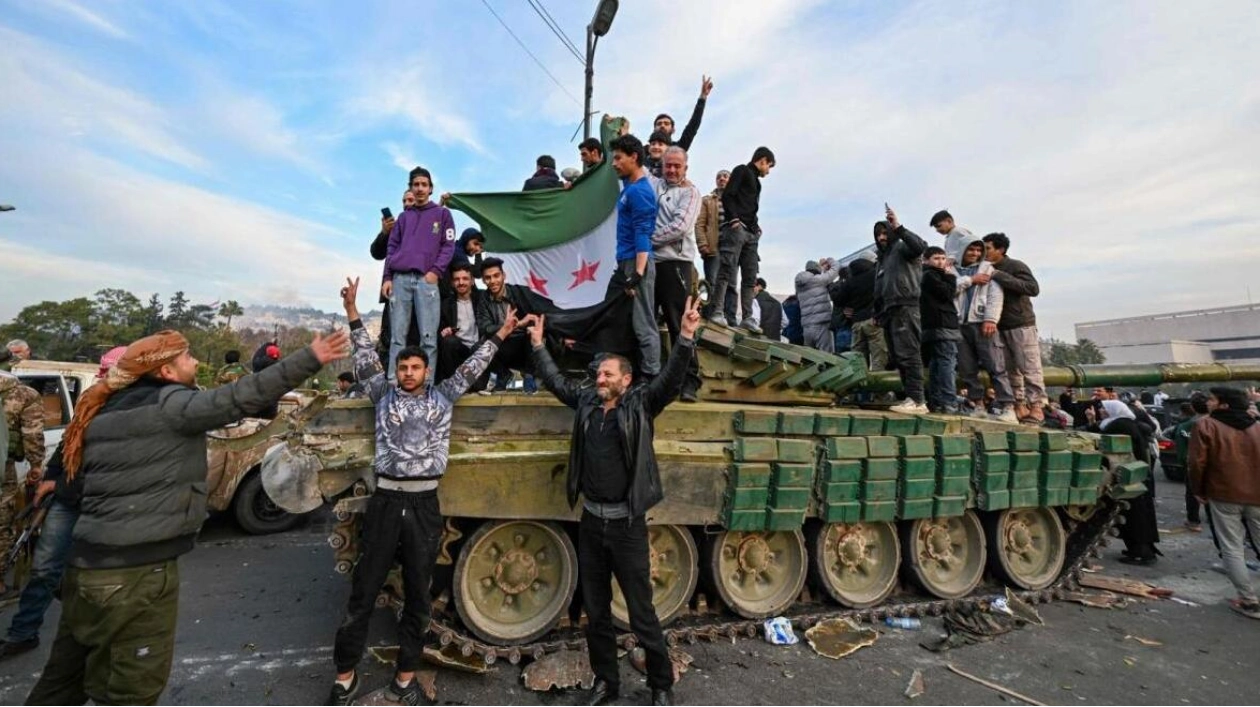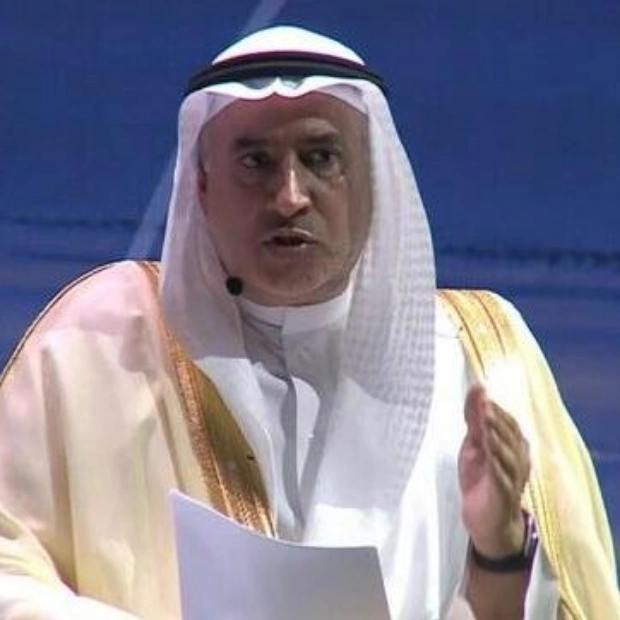Anti-government fighters celebrated at Umayyad Square in Damascus on Sunday, marking a significant victory. — AFP
Syrian rebels have successfully overthrown President Bashar Al Assad following a rapid offensive that saw major cities fall from government control within two weeks, culminating in the capture of the capital Damascus on Sunday.
Aron Lund, a fellow at the Century International think tank, explained to AFP that the primary factor in the rebels' triumph was 'regime weakness and reduced international assistance to Assad'. He also highlighted Islamist rebel leader Abu Mohammed Al Jolani's efforts in building institutions and centralizing the rebellion under his control as crucial.
Syria's prolonged civil war, which began with a crackdown on anti-government protests in 2011, had seen static front lines for the past four years until the rebels launched their massive offensive.
AFP examines the factors contributing to Assad's sudden downfall. The Syrian army, weakened by over half a million casualties and a devastated economy, infrastructure, and industry, is now a mere shell of its former self.
In the early years of the war, experts noted that casualties, defections, and draft-dodging reduced the military's 300,000-strong force by about half. According to the Britain-based Syrian Observatory for Human Rights, the army offered little resistance in some areas after the rebels' offensive began on November 27, with soldiers frequently evacuating positions across the country.
David Rigoulet-Roze of the French Institute for International and Strategic Affairs stated, 'Since 2011, Syria's army has faced attrition in manpower, equipment, and morale'. Reports suggest that underpaid soldiers resorted to looting for survival, and many young men evaded conscription.
On Wednesday, Assad ordered a 50% increase in career soldiers' pay, but with Syria's economy in ruins, soldiers' salaries hold little value. The army has not officially commented since Damascus fell to the rebels.
Assad's reliance on military, political, and diplomatic support from key allies Russia and Iran had previously allowed him to regain lost territory. However, the recent rebel offensive coincided with Russia's involvement in Ukraine, and its air strikes failed to halt the Islamist-led rebels' advance, which captured major cities including Aleppo, Hama, Homs, and finally Damascus.
Iran, another key ally, has provided military advisers and supported pro-government armed groups. However, setbacks in fighting with Israel since the Gaza war erupted have weakened Iran's influence.
Nick Heras, an analyst at the New Lines Institute, suggested that 'ultimately, the Assad government's survival depends on the extent to which Iran and Russia see Assad as useful to their regional strategies'. If either ally decides they can advance their interests without Assad, his days in power are limited.
Hezbollah, a Lebanese militant group, has openly supported Damascus since 2013, sending thousands of fighters. However, the rebels' offensive began the same day a ceasefire took effect between Israel and Hezbollah, prompting Hezbollah to shift fighters to south Lebanon, weakening its presence in Syria.
A source close to Hezbollah reported that hundreds of its fighters were killed in conflict with Israel, though exact figures were not provided. The fighting also decimated Hezbollah's leadership, with several senior commanders, including the group's longtime chief Hassan Nasrallah, killed in Israeli air strikes.
On Sunday, another source close to Hezbollah stated that the group was withdrawing forces from the outskirts of Damascus and the Homs area near the border.
Israeli Prime Minister Benjamin Netanyahu attributed Assad's overthrow to 'the blows we have inflicted on Iran and Hezbollah, Assad's main supporters'.
Source link: https://www.khaleejtimes.com






